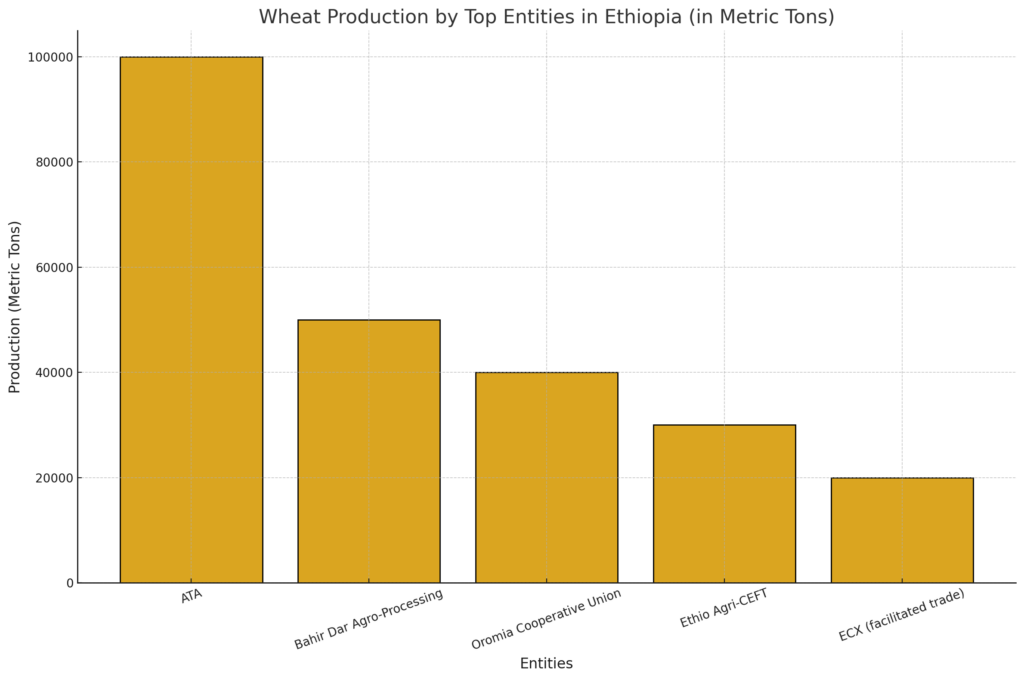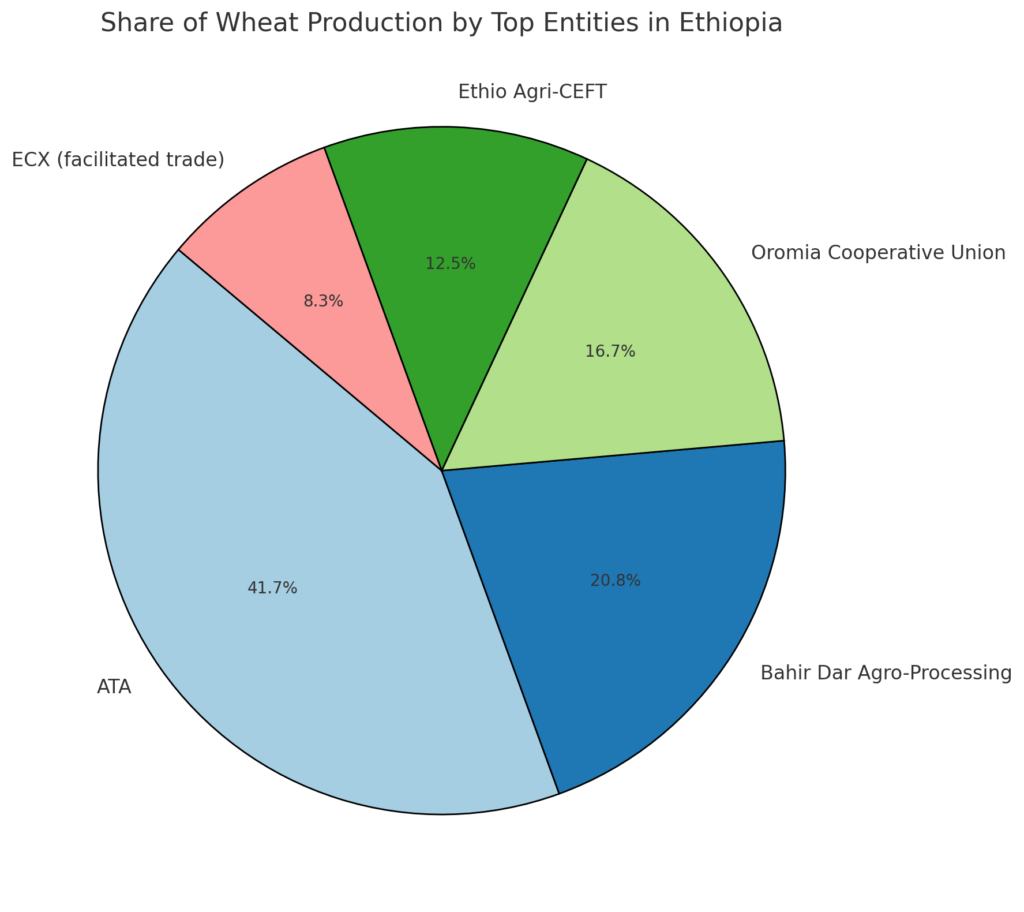Ethiopia, a rising star in Africa’s wheat production, has made remarkable progress in recent years. Supported by government initiatives and private sector investments, the country is on a mission to achieve self-sufficiency and even enter the export market. This report highlights Ethiopia’s top wheat-producing companies and organizations, their contributions, and how they are shaping the agricultural landscape.
🚀 Supercharge Your Insights with ESS Pro
Access over 50,000 expert market reports and connect with more than 500,000 verified industry contacts across the global food & beverage value chain.
Includes exclusive insights, top 10 rankings, live market indicators, and up to 10 custom research reports annually.
🔓 Join ESS Pro – Unlock Full Access

1. Ethiopian Agricultural Transformation Agency (ATA)
The ATA is a government agency driving agricultural transformation in Ethiopia, with a strong focus on wheat production.
Key Highlights:
- Role: Implements large-scale wheat farming initiatives.
- Focus Areas: Introduced mechanized farming in Oromia and Amhara regions.
- Sustainability: Promotes drought-resistant wheat varieties.
- Impact: Supports smallholder farmers with training and resources.
The ATA has been instrumental in increasing Ethiopia’s wheat production capacity, helping the country reduce its dependence on imports.
2. Bahir Dar Agro-Processing
Bahir Dar Agro-Processing is a leading private agribusiness in Ethiopia, specializing in large-scale wheat farming and milling.
Key Highlights:
- Operations: Cultivates wheat in the Amhara region.
- Production Capacity: Processes over 50,000 metric tons of wheat annually.
- Modernization: Uses advanced milling technologies to ensure high-quality flour production.
- Market Contribution: Supplies wheat products to domestic markets.
Bahir Dar Agro-Processing is a model for private sector involvement in Ethiopia’s wheat industry.
3. Oromia Cooperative Union
This cooperative union plays a vital role in wheat production by aggregating and supporting smallholder farmers in the Oromia region.
Key Highlights:
- Membership: Represents thousands of smallholder farmers.
- Production Scale: Aggregates and processes over 40,000 metric tons of wheat yearly.
- Support Services: Provides seeds, fertilizers, and training to farmers.
- Economic Impact: Increases income for rural communities through collective farming efforts.
The Oromia Cooperative Union’s efforts have strengthened wheat production in one of Ethiopia’s most fertile regions.
4. Ethio Agri-CEFT
Ethio Agri-CEFT is a large agribusiness operating extensive wheat farms and contributing significantly to Ethiopia’s food supply.
Key Highlights:
- Farming Areas: Operates farms in Oromia and Southern Nations regions.
- Innovations: Implements mechanized harvesting and efficient irrigation systems.
- Production Capacity: Produces over 30,000 metric tons of wheat annually.
- Export Potential: Aims to become a major player in regional wheat trade.
Ethio Agri-CEFT exemplifies the potential of commercial farming in Ethiopia’s wheat industry.
5. Ethiopian Commodity Exchange (ECX)
While not a direct producer, the ECX plays a critical role in Ethiopia’s wheat value chain by facilitating trade and market access for farmers.
Key Highlights:
- Market Platform: Connects wheat producers with buyers, improving market efficiency.
- Transparency: Provides real-time pricing data to farmers.
- Impact: Helps stabilize wheat prices and ensures fair trade practices.
- Volume: Facilitates the trade of thousands of metric tons of wheat annually.
The ECX empowers Ethiopia’s wheat farmers by ensuring fair access to markets and competitive prices.

Key Factors Supporting Ethiopia’s Wheat Industry
- Government Initiatives: Policies supporting mechanized farming and irrigation projects.
- Technological Integration: Adoption of high-yield wheat varieties and modern farming practices.
- Regional Focus: Investments in fertile areas like Oromia and Amhara for wheat cultivation.
Challenges in Wheat Production
- Climate Vulnerabilities: Droughts and erratic rainfall affect yields.
- Infrastructure Gaps: Limited storage and transportation facilities hinder efficiency.
- Pest Management: Inconsistent pest control measures pose risks to crops.
Opportunities for Growth
- Irrigation Expansion: Scaling up irrigation systems to boost production in arid regions.
- Public-Private Partnerships: Encouraging collaboration between the government and private companies.
- Export Markets: Positioning Ethiopia as a key wheat exporter in Africa and beyond.
Conclusion
Ethiopia’s top wheat producers, including the ATA, Bahir Dar Agro-Processing, Oromia Cooperative Union, Ethio Agri-CEFT, and the ECX, are transforming the country’s agricultural landscape. Through innovation, sustainability, and strategic investments, Ethiopia is well on its way to becoming self-sufficient in wheat production and a potential exporter.



